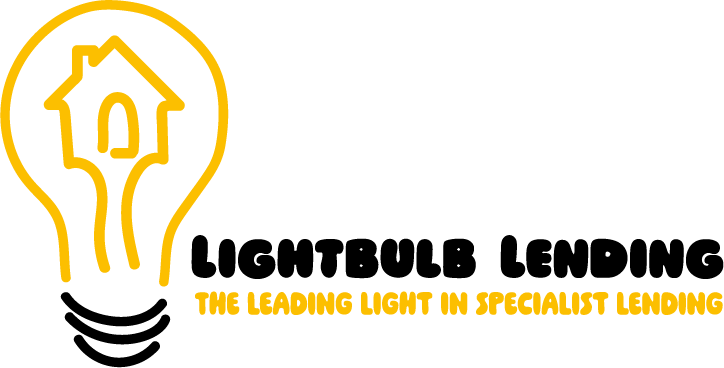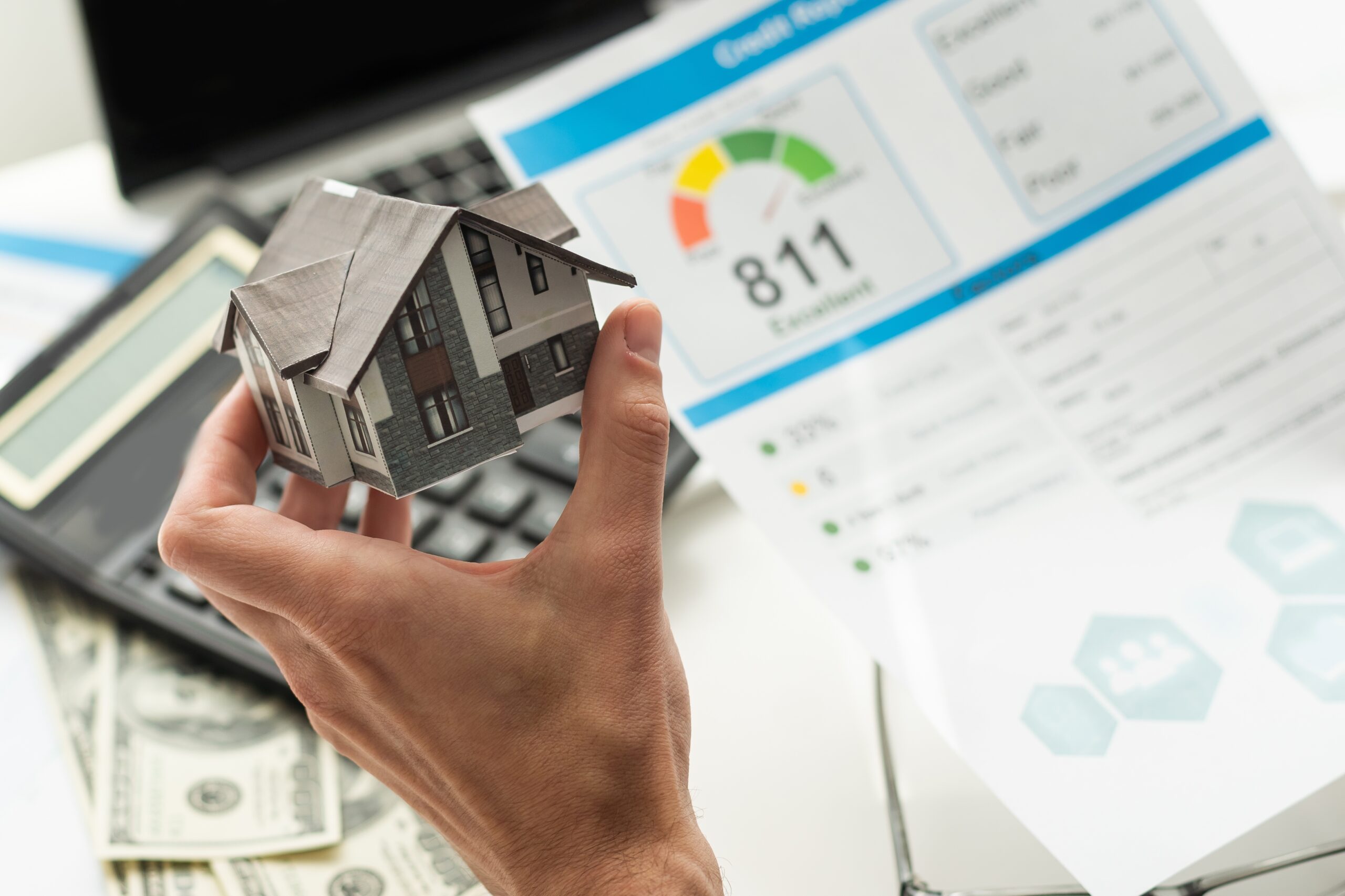Navigating the world of mortgages can be overwhelming, especially when it comes to understanding the impact your credit score has on your application’s success. A healthy credit score is much more than just a number, it is a key factor in determining your mortgage eligibility. At Lightbulb Lending, we understand the challenges that hopeful buyers face, but with our guidance and support – we aim to make your homeownership goals a reality. In this blog post, we’ll explore 10 ways you can improve your credit score when applying for a mortgage. By understanding what impacts your credit score and the strategies you can implement to enhance it, you can improve your chance of securing a mortgage. Let Lightbulb Lending empower you to take control of your financial future and see how we can help you secure a mortgage. Ready to schedule your FREE consultation? Contact our team today!
Understanding Mortgage Applications & Credit Scores
Before we look at ways you can improve your credit score ahead of applying for a mortgage, it’s important to understand how your score can impact your application. Your credit score is a representation of how creditworthy you are and is used by lenders to determine the risk associated with lending you money. Here are some of the factors that can impact your credit score when applying for a mortgage…
Defaults and CCJs can negatively impact your credit score. A default occurs when you fail to repay a debt as agreed, and a CCJ (County Court Judgement) is when you are issued with a court order if you don’t settle a debt. Defaults and CCJs can have a lasting impact on your credit score and remain on your record for 6 years.
IVAs (Individual Voluntary Arrangements) and bankruptcy can be hugely detrimental to your credit score. An IVA is a legal agreement between you and your creditors to repay your debts at an affordable rate. Bankruptcy is the process of declaring that you cannot financially repay your debts. Both can remain on your record for several years, negatively impacting your credit score.
A Debt Management Plan (DMP) is a formal agreement with a singular body or charity, that will make an arrangement with all your creditors to make payments based on what you can afford after prioritising essential expenses such as rent, utilities, and council tax. Unlike an IVA, a DMP does not have a fixed end date and can last as long as is necessary to repay the debt.
High-street lenders usually rely on credit scores to assess the risk of lending. If you have no credit history available, you may be viewed as a high-risk applicant as no data shows how well you manage financial repayments. Building a good credit history is essential, even if it takes time and is worthwhile when applying for a mortgage.
Don’t let financial difficulties deter you from applying for a mortgage. Even if you have a bad credit score or no credit history, securing a mortgage is perfectly achievable. At Lightbulb Lending, we work with lenders who understand that life events can impact your credit score. If you have a low credit score and wish to apply for a mortgage, you might feel that your options are limited. We are experts in helping clients with impaired credit secure a mortgage, no matter your financial history. We’re here to make your dream home possible, so contact us today for your FREE consultation.
10 Ways to Improve Your Credit Score When Applying For a Mortgage
Securing a mortgage with a poor credit score is possible, but that doesn’t mean that you can’t try to improve it before applying. Here at 10 ways that you can improve your credit score when applying for a mortgage, helping to make your homeownership goals a reality…
Check Your Credit Report
Regularly reviewing your credit report can help you spot inaccuracies and areas for improvement. Each of the major credit reference agencies provides a free annual credit report. Dispute any errors you find, as they can negatively affect your credit score.
Pay Your Bills on Time
Consistently paying your bills on time is one of the best ways to improve your credit score rating. Your payment history accounts for a significant portion of your credit score, so setting up reminders or direct debits can help you stay on track with your finances.
Reduce Your Credit Utilisation Ratio
Your credit utilisation ratio is the amount of credit you’re using compared to your total available credit. We recommend keeping this ratio below 30%. Paying down outstanding balances and requesting credit limit increases can help improve this number.
Avoid Opening New Credit Accounts
Each time you apply for new credit, a hard credit check is made on your credit report which can temporarily lower your score. We recommend that you avoid opening new accounts while preparing to apply for a mortgage to maintain your score.
Keep Old Credit Accounts Open
The length of your credit history matters. Even if you don’t use them regularly, keeping older accounts open can positively impact your credit score by showing a long history of responsible credit use.
Consider Becoming an Authorised User
If you have a family member or friend with a good credit score, ask if you can become an authorised user on their credit card. This can help boost your credit score by adding their positive payment history to your report.
Address Any Defaults or CCJs
If you have defaults or CCJs on your credit record, we advise paying them off as soon as you’re able to. While they will remain on your credit report for 6 years, showing that you’ve settled your debts can help improve your score over time.
Utilise a Credit Builder Card
If you have bad credit, consider using a credit builder card. These cards are designed for individuals with limited credit history and using them responsibly can significantly improve your credit score.
Prove Where You Live
We highly recommend registering on the electoral roll at your current address – you can do this even if you’re in shared accommodation or living at home with your parents. Proving where you live can significantly improve your credit score.
Seek Professional Advice
If you’re struggling to improve your credit score, don’t hesitate to seek professional advice. A financial advisor or credit counsellor can provide tailored strategies to help you enhance your creditworthiness.
Actively trying to improve your credit score with these techniques can improve the likelihood of your mortgage application being approved. Ensuring a good credit score can make you a more attractive candidate and can be a positive step in securing your dream home. But why is good credit so important when applying for a mortgage?
The Importance of a Good Credit Score When Applying for a Mortgage
A good credit score is essential to opening doors to better mortgage options and financial flexibility. Here’s why ensuring you have a good credit score is so important when applying for a mortgage…
- Lower Interest Rates
Lenders typically offer lower interest rates to those with higher credit scores. This can work in your favour, leading to significant savings over the life of your mortgage.
- Higher Loan Amounts
A good credit score can help you qualify for a higher loan amount. This allows you to purchase the home of your dreams without compromising your financial situation.
- Better Loan Terms
With a higher credit score, you may be eligible for more favourable loan terms, such as a shorter repayment period or lower fees, enhancing your overall mortgage experience.
- Increased Approval Odds
A strong credit score increases your chances of mortgage approval, as lenders view you as a lower-risk applicant and will be more likely to accept your application.
- Greater Flexibility in Choosing Lenders
With a good credit score, you can shop around for the best mortgage options, as you’ll have more lenders willing to work with you.
- Exclusive Offers
Some lenders provide exclusive offers or discounts to individuals with good credit scores, allowing you to save even more on your mortgage.
- Improved Negotiation Power
A high credit score gives you leverage in negotiations with lenders. This could potentially enable you to secure better terms or incentives.
The importance of a good credit score when applying for a mortgage should never be underestimated. By improving your credit score, you can enjoy the financial benefits that come with homeownership while easing the stress of the mortgage application process. However, if you do have poor or no credit, all is not lost. At Lightbulb Lending, we work with a wide range of lenders, including those who do not rely on credit scoring and are more flexible in their lending criteria. Contact us today to start your journey to homeownership with a FREE consultation.
Taking Control of Your Financial Future
Taking control of your financial future by improving your credit score when applying for a mortgage is not just about numbers – it’s about empowering your future and reaching your homeownership goals. By taking proactive steps to enhance your creditworthiness, you can pave the way for a more secure and fulfilling homeownership experience. Remember, every small action you take can lead to significant improvements over time. At Lightbulb Lending, we are here to guide you on your journey towards achieving your mortgage goals. Our expert team can provide tailored advice and support, ensuring you have all the tools you need to succeed – contact us for your FREE quote today!
FAQs
Can I get a mortgage with a Debt Management Plan?
Yes, it is possible to get a mortgage with a DMP, especially if you have been making consistent payments for at least 12 months.
How long should I wait after settling my DMP to apply for a mortgage?
Some lenders may prefer you to wait 12 months after settling your DMP, while others may be willing to consider your application sooner.
Can I get a mortgage if I’m still in an IVA?
Yes, although it may be more challenging to get a mortgage if you are in an IVA, it is possible. A higher deposit will likely be required and only certain lenders will consider your application.
Can I get a mortgage after bankruptcy?
Yes, you can apply for a mortgage after being discharged from bankruptcy for at least 9-12 months. The longer the discharge period, the more favourable the terms may become.
How much deposit will I need if I have a history of bankruptcy?
The deposit required will vary depending on how long it has been since your bankruptcy was discharged. Typically, a larger deposit is required initially, but this may decrease over time.
Can I get a mortgage with no credit history?
Yes, it is entirely possible to get a mortgage with no credit history. We work with lenders who may offer a mortgage to individuals with no credit history.
What deposit will I need if I have no credit?
Typically, a minimum deposit of 10% is required, but a larger deposit may improve your chances of approval.
How long does the mortgage application process take?
The process can take several weeks, depending on the complexity of your application and the lender’s requirements.
Can I get a mortgage if I am not on the electoral roll?
While it may be more challenging, it is still possible. We can help identify lenders who are more flexible with their criteria.
What should I do if my mortgage application is rejected?
The most important thing is not to be discouraged. We will work with you to explore other lenders who may be more suited to your financial situation.
Take the First Step To Your Dream Home Today
We believe that everyone deserves a chance to own their dream home. So if you’re worried about securing a mortgage due to bad credit, contact Lightbulb Lending today.


